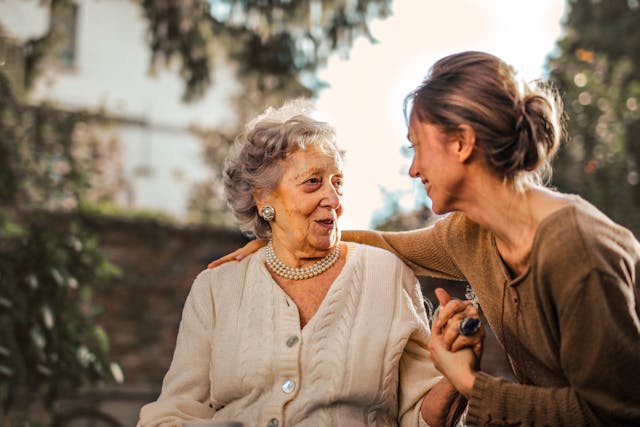Recovering from mental health challenges can feel isolating, but community support in mental health recovery makes healing achievable and fulfilling. Connection with others who understand fosters emotional growth reduces loneliness, and builds resilience. Support networks, whether friends, family, or local groups, provide encouragement and practical help when needed. Compassionate relationships create opportunities to share experiences and find understanding within safe spaces in person and online. Leaning on supportive communities offers hope and strength to move forward. Embracing a network of care opens doors to new opportunities for personal growth and a healthier, happier life.
BUILDING SINCERE CONNECTIONS
People need sincere connections to be truly happy and healthy. Fostering support and understanding can significantly impact mental health recovery. Identifying or creating supportive communities starts with seeking spaces where empathy and shared experiences thrive. Local support groups, neighbourhood organizations, and workplace initiatives are excellent starting points for building meaningful relationships.
Listening and understanding
Shared experiences play an important role in mental health recovery, as they help individuals feel understood and less isolated. There’s something hopeful about the realization that you’re never truly alone. Through conversations with others, you will see that they have faced similar challenges. That fosters trust and provides practical insights that lead to healing. These shared moments often become the foundation of a lasting support system.
There are plenty of community resources to choose from. Peer-led support groups, therapy circles, and online forums are valuable platforms for connection. Websites, social media groups, and dedicated apps provide safe spaces to share experiences anonymously and receive guidance. Together, shared understanding and support pave the way for growth, resilience, and a brighter future.
HOW FRIENDS AND FAMILY PLAY A VITAL ROLE IN HEALING
Our relationships with our loved ones are based on kindness and love, which is what we need to heal. Support from friends and family plays a significant role in mental health recovery by fostering understanding and care. Offering effective help requires a balance of empathy, patience, and encouragement. Listening without judgment, feeling free to talk about your feelings at home, and having a safe environment also help people feel valued and supported.
A consistent presence during difficult times reminds individuals that they are not alone. Simple actions like regular check-ins or spending quality time together can greatly improve emotional well-being. With kindness and understanding, loved ones can inspire growth, resilience, and recovery, offering hope for a brighter and healthier future.

Your family and friends are your biggest support during a hard time
HEALING THROUGH HOBBIES: THE ROLE OF INTERESTS IN MENTAL HEALTH RECOVERY
Hobbies provide a meaningful outlet for mental health recovery by offering relaxation and personal growth. Creative activities like painting, writing, or gardening with your favorite people can reduce stress and improve focus. Although oftentimes a solitary activity, reading books in recovery doesn’t have to be lonely. Literature is an additional support: it promotes mental stimulation and helps people find a path to healing. In addition, it can foster connection when shared through book clubs or mental health-focused groups.
Shared hobbies help individuals feel less isolated by creating opportunities to build a supportive community. Exploring new interests allows for discovering activities that enhance emotional well-being and encourage self-expression. Embracing hobbies fosters confidence, promotes accomplishment, and creates pathways for recovery within a supportive network
OVERCOMING STIGMA WITH COMMUNITY SUPPORT IN MENTAL HEALTH RECOVERY
With the support of collective voices, overcoming stigma becomes more achievable. In fact, communities that advocate for mental health awareness challenge harmful stereotypes and encourage understanding through education and open dialogue. Public campaigns, support groups, and events help create environments where people feel safe to share their stories and break down misconceptions. However, some stereotypes about mental health are deeply rooted. These include:
- People with mental health “issues” are weak or lack willpower.
- Mental illness isn’t as serious as physical illness
- Therapy or medication isn’t necessary—it’s just about thinking positively.
- Those struggling with mental health are dangerous or unpredictable.
- Mental illness only affects certain types of people.
Joining supportive communities—online or local—can provide the reassurance needed to confront stigma and find acceptance. With shared efforts, communities inspire positive change, which means that no matter how common the stereotype is, it is not impossible to overcome it.

Luckily, nowadays, the stigma about mental health is not so loud anymore, and people are talking mental health in their community for support in recovery.
HOW VOLUNTEERING HELPS BOTH YOU AND THE COMMUNITY THRIVE
Volunteering offers meaningful ways to support others while fostering personal growth during recovery. It enhances self-worth, providing a sense of accomplishment and purpose. Engaging with others through volunteering reduces isolation, creating connections that contribute to community support in mental health recovery. According to a National Council for Voluntary Organizations (NCVO) survey, 77% of people reported that volunteering improved their mental health. Volunteering activities help people feel important and strengthen their emotional resilience.
Volunteering opportunities focused on mental health include supporting peer-led groups, assisting at local shelters, or participating in awareness campaigns. Helping others through small actions, such as organizing events or offering a listening ear, creates a positive impact.
Volunteers contribute to their community while finding fulfillment and building stronger social ties. This shared support nurtures recovery and helps both individuals and communities thrive together.
BALANCING INDEPENDENCE WITH COMMUNITY SUPPORT
You can find help in community support while also relying on yourself. The personal agency builds confidence and fosters growth, helping you take charge of your healing. Participating in community activities can complement this effort, providing encouragement and connection without overshadowing self-reliance.
Practicing self-care and making independent decisions are essential steps to staying grounded. Engage thoughtfully with supportive networks, ensuring these interactions align with your goals. Establishing clear boundaries is the only way to create a healthy balance. That will foster respectful and empowering relationships.

Relying on oneself is a sign of strength and confidence, and both are important for mentally feeling better
MOVING FORWARD: SUSTAINING CONNECTIONS FOR LONG-TERM WELL-BEING
Fostering meaningful connections is essential for sustaining well-being in mental health recovery. Building strong and healthy relationships starts with consistent efforts, such as staying in touch through messages, calls, or in-person meetings. Being present and attentive when others share their experiences helps create trust and mutual understanding.
Celebrate milestones together to strengthen these bonds, such as overcoming a challenge or achieving a goal. Shared celebrations foster a sense of belonging and deepen connections. Expressing gratitude and acknowledging the support you’ve received can also nurture relationships.
To deepen ties with your community, engage in activities that promote collaboration, such as volunteering or attending group events. These efforts create a network of support that enriches personal growth and long-term well-being.
Community is a powerful force in healing. Community support in mental health recovery offers connection, understanding, and shared strength. Individuals can create a balanced, fulfilling life by fostering relationships, embracing hobbies, and celebrating progress. Together, communities provide the foundation for resilience, growth, and lasting well-being, proving that no one has to face recovery alone.
If you would like to discuss mental health and therapy with our team, or talk to a professional for more information, please contact us HERE